Tag Archives: cloud computing
Machine Learning – Cloud-native Model Deployments
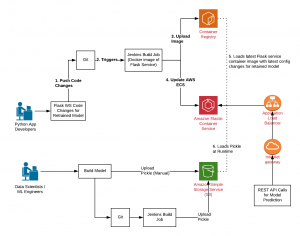
In this post, we are going to learn about the cloud-native machine learning model deployments. Cloud-native Deployments First and foremost, let’s understand the meaning of cloud-native deployments? If we are building an application or a service and we can deploy this application or the service on any cloud platform without much ado, it could be said as cloud-native deployment. And the way it is made possible is through the container technologies such as Dockers. What basically is required to be done is to wrap the applications or the services within the containers and move the containers images onto the cloud services such as AWS ECS, AWS EKS or Google Kubernetes …
AWS reInvent – Top 7 New Machine Learning Services
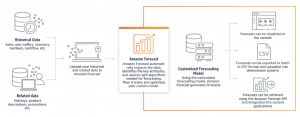
In this post, you will learn about some great new and updated machine learning services which have been launched at AWS re:Invent Conference Nov 2018. My personal favorite is Amazon Textract. Amazon Personalize Amazon Forecast Amazon Textract Amazon DeepRacer Amazon Elastic inference AWS Inferentia Updated Amazon Sagemaker Amazon Personalize for Personalized Recommendations Amazon Personalize is a managed machine learning service by Amazon with the primary goal to democratize recommendation system benefitting smaller and larger companies to quickly get up and running with the recommendation system thereby creating the great user experience. Here is the link to Amazon Personalize Developer Guide. The following are some of the highlights: Helps personalize the user experience using some of …
Google Cloud Text-to-Speech Java Code Example
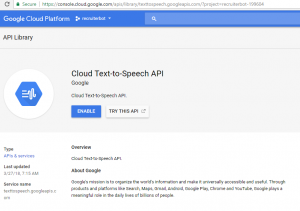
Google Cloud Text-to-Speech is a text-to-speech conversion service which got launched a few days back by Google Cloud. This was one of the most important service missing from Google Cloud AI portfolio which is now available and completes the loop for text-to-speech and speech-to-text services by Google Cloud. In next few weeks, you will learn about different usages of Google Cloud text-to-speech service with other Google cloud services. In this post, you will learn about some of the following: Setup Eclipse IDE-based Development Environment Create a Maven or Spring Boot (Spring Starter) Project Setup Eclipse IDE-based Development Environment The following are some of the key aspects of setting up the …
Sentiment Analysis Examples using Google Cloud NLP API

Sentiment analysis of a text document such as speech, articles on websites etc is about assessing sentiments associated with the document as a function of overall emotions expressed in form of different words. Sentiment analysis is primarily used for tracking voice of customer (VOC) by analyzing customer reviews, survey responses, etc., in social media websites such as Facebook, Twitter etc. The VOC can be related to products in general, an event, movies etc. In this post, you will learn about how to use Google Cloud NLP API for performing sentiment analysis of a text document. Java code is used for programming the sentiment analysis. Google NLP API – Sentiment Analysis Metrics …
CareNGrow powers Preventive Healthcare Platform with AI & Cloud-Computing

CareNGrow is building a preventive healthcare platform based on AI and cloud-computing technologies. One of the goals is creating and monitoring the physical, psychological, and behavioural health profile of children in schools. The following represents key workflow steps which is implemented while examining a kid / child: Data gathering Transfer data over internet to cloud Feed the data into the analytics platform Perform the data analysis (Predictive Analytics) Generate health reports This is a brainchild of a young doctor, Dr. Meghana Kambham. CareNGrow is already making waves in different startup competitions owing to the work they have been doing. In this relation, they have been announced as one of the UberExchange winners. Check …
AWS Cloud9 IDE and Java / PHP Hello World

This article represents tutorial in relation to how to get started with creating your first Java / PHP Hello World program using AWS Cloud9 IDE. Supported Runtimes in AWS Cloud9 Before getting started with creating runtime environment and execute hello world programs in Java and PHP and other languages, lets look at what all runtimes are supported. Following screenshot represents the supported runtime: The above represents the fact that one could create programs / application using one of the following programming languages: C C++ Java Go Node.js PHP Python Ruby In this article, I have shown how to create hello world program using Java and PHP programming language. The following steps represent way to create your hello world programs. The following are some of the steps …
Why use AWS Fargate for Deploying Your Cloud-Native Apps
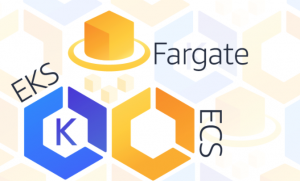
In past, if you have been used to deploying your cloud-native apps or microservices hosted within a Docker container on AWS ECS, you may have also been required to do some of the following: Choose server types in relation with provisioning AWS EC2 instances Configure appropriately to scale the cluster as and when required Optimize cluster packing In short, with AWS ECS, until the launch of AWS Fargate, you were required to manage the infrastructure and related configuration in relation with scalability etc. With AWS Fargate, Focus in on Designing and Building Apps With AWS Fargate, all that is required to be done are some of the following: Package your application in containers Specify the CPU and memory requirements Define …
AWS EKS is the Way to Run Kubernetes on AWS ECS
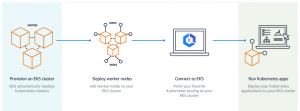
AWS Elastic Container Service for Kubernetes, AWS EKS, is a new AWS fully managed service running Kubernetes out-of-box on AWS without needing to install and operate / manage our own Kubernetes clusters. . Gone are the days when we (63% of Kubernetes workloads as per CNCF spent time and effort setting up and running / managing Kubernetes (Master and a cluster of workers) on AWS EC2 instances with no support from AWS service. Not only this, there was whole lot of high availability requirements in relation with Kubernetes which needed to be managed by running Kubernetes master on different availability zones (AZs). Key Features of AWS EKS Support for existing plugins and …
Cloud Certifications Fees as of Today

Price list (Fees) of cloud computing certifications as of today. Please feel free to suggest if you were able to found discrepancy. The source of the price list are respective websites/portals related to cloud computing platforms. The following is the list of cloud platforms for which certification fees / cost / price have been provided. AWS (https://aws.amazon.com/certification/) Google Cloud (https://cloud.google.com/certification/cloud-architect) Azure (https://www.microsoft.com/en-in/learning/azure-certification.aspx) Cloud Certifications Fees / Price List/ Cost Cloud Platforms Certification Types Fees AWS Associate Level Certification $150 AWS Speciality Level Certification $300 AWS Professional Level Certification $300 Google Cloud Google Certified Professional (Cloud Architect) $200 Azure Developing Microsoft Azure Solutions $165 Azure Implementing Microsoft Azure Infrastructure Solutions $165 …
Top 8 Cloud Computing Platform Certifications

This article represents a list of top cloud computing platforms’ certifications which can be taken by professionals looking forward to demonstrate their expertise with one or more cloud computing platforms. Here are the cloud computing platforms for which certifications information have been provided later in this article: Azure AWS IBM Cloud Google Cloud Oracle Cloud Vmware VPC Alibaba Salesforce Microsoft Azure Certifications Microsoft Certified Solutions Associate (MCSA) There are two types of certifications under this category: MCSA: Cloud platform MCSA: Linux on Azure Microsoft Certified Solutions Expert (MCSE) This is a ceritification related to gathering expertise in cloud platform and infrastructure. Here is the page for MCSE: Cloud platform and …
How to Design & Develop Cloud-Ready Applications?
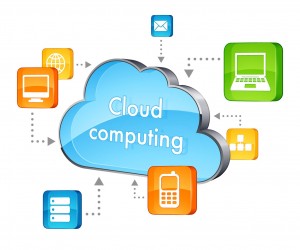
I have come across many a developers who were seen to have blank face when talked about the fundamentals on how to design and develop cloud ready applications. Taking a step back, most of them are still unaware of what is meaning of cloud computing and, do they require to acquire one or more specific skill sets to design and develop cloud ready applications? In short, a cloud-ready applications can be developed using any programming language. All that is required is to keep in mind few design and development fundamentals in this relation. By the way, as per the technology trends for 2014 published by several analysts, it is high …

I found it very helpful. However the differences are not too understandable for me